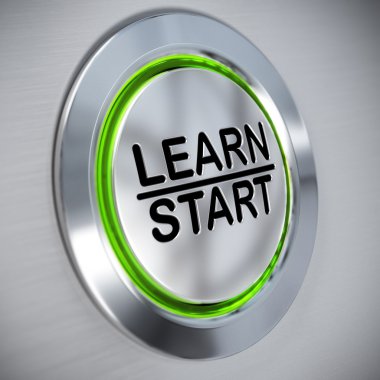How Does Coursera Work? A Complete Guide for New Learners
Coursera is one of the world’s top online learning platforms, offering thousands of courses, specializations, professional certificates, and even degrees in partnership with leading universities and companies like Google, Yale, and Stanford. With a reputation for delivering high-quality, flexible education, Coursera is a popular choice for learners worldwide. But what exactly does Coursera offer, and how can it help you achieve your learning goals? Let’s break it down in this guide to help you decide if Coursera is the right platform for you.
Key Benefits of Coursera
- Flexible learning with self-paced and instructor-led options
- Wide range of topics from data science to personal development
- Certification and degree programs that enhance your resume
- High-quality instruction from top universities and industry leaders
Ready to discover how Coursera can work for you? Sign up now for a 7-day free trial and explore courses risk-free.
Getting Started on Coursera
Wondering how Coursera works? Here’s a quick guide to setting up your account and navigating the platform.
Step 1: Creating an Account
- Visit Coursera: Go to Coursera’s homepage.
- Click “Join for Free”: Use your email, Google, or Facebook to create a free account.
- Access Your Dashboard: Once registered, you’ll have access to Coursera’s dashboard, where you can browse courses, track progress, and manage settings.
Step 2: Browsing Courses
Coursera has thousands of courses across subjects like business, technology, data science, and healthcare. You can browse by category or search for specific topics or skills. Each course page includes details on syllabus, duration, and reviews to help you choose the best fit.
Step 3: Navigating Your Dashboard
The dashboard is your main hub on Coursera. From here, you can:
- Track progress on enrolled courses
- Resume learning at any time
- Access certificates for completed courses
Coursera makes getting started easy and intuitive. Plus, with a 7-day free trial, you can explore courses without any risk. Try Coursera’s free trial to see what it’s like to learn from world-class educators.
Types of Courses and Learning Paths on Coursera
Coursera offers various types of programs to suit different learning goals and time commitments. Here’s an overview of each:
1. Individual Courses
Perfect for learning specific skills, individual courses cover topics like programming, marketing, and wellness. Most take just a few hours to complete, making them ideal for short-term learning goals. Successful completion earns you a shareable certificate.
2. Specializations
Specializations are series of courses designed to help you gain expertise in a particular subject, such as data science or project management. These multi-course programs often include a capstone project that lets you apply your skills in real-world scenarios. Specialization certificates are great for showcasing comprehensive skills.
3. Professional Certificates
Professional certificates are career-focused programs created with industry leaders like Google and IBM to prepare you for specific roles, such as IT support or data analysis. These certificates are recognized by employers and offer job-ready skills.
4. MasterTrack Certificates
MasterTrack Certificates are portions of master’s degree programs from universities. Completing one allows you to earn university credits, which can be applied if you pursue a full degree later on.
5. Full Degrees
For those seeking a degree, Coursera offers fully accredited online bachelor’s and master’s programs in fields like business and computer science. These degrees are taught by top universities and carry the same credibility as on-campus programs.
How Coursera Courses Work: Structure and Learning Formats
Understanding the structure of Coursera’s courses is key to getting the most out of the platform.
Course Structure
- Video Lectures: Most courses are built around video lectures, broken into manageable segments so you can learn at your own pace.
- Quizzes and Assignments: Courses often include quizzes to test your knowledge and hands-on assignments to apply what you’ve learned.
- Peer Reviews and Discussions: Some courses incorporate peer-reviewed assignments and discussion forums to promote interaction with fellow learners.
Self-Paced vs. Instructor-Led Learning
- Self-Paced: Most Coursera courses are self-paced, allowing flexibility to complete them whenever you have time.
- Instructor-Led: Some courses, particularly those in degree programs, are instructor-led with scheduled deadlines and live sessions.
With these diverse learning formats, Coursera caters to learners with varying needs, from flexible self-study options to more structured, guided learning paths.
Enrollment and Payment Options on Coursera
Coursera offers several enrollment options to fit different budgets and learning preferences.
Free vs. Paid Courses
- Free Courses: Many courses are free to access, though they don’t include graded assignments or certificates.
- Paid Courses: Paid courses unlock full content, including assessments and a certificate of completion.
Subscription Models
- Coursera Plus: For $399/year, Coursera Plus offers unlimited access to over 7,000 courses and certificates, making it an excellent choice if you’re planning to take multiple courses.
- Pay-Per-Course: You can pay for individual courses, with prices typically between $39 and $99, or specializations on a monthly basis.
Pro Tip: Coursera offers financial aid for learners who qualify, making high-quality education accessible to everyone.
Free Trial Option
Coursera offers a 7-day free trial for most specializations and professional certificates. This gives you full access to all course materials and allows you to explore without financial commitment.
Ready to start learning? Sign up for Coursera’s 7-day free trial and dive into your first course today!
Earning Certificates and Degrees on Coursera
A major benefit of Coursera is the ability to earn recognized credentials. Here’s a quick look at what’s available:
Coursera Certificates
- Course Certificates: Earned by completing individual courses, these certificates demonstrate skills in a specific area.
- Specialization Certificates: Awarded upon completing all courses and the capstone project in a specialization.
- Professional Certificates: Recognized by employers, these are ideal for career-focused learners.
Degrees on Coursera
Coursera offers fully accredited online degrees in partnership with top universities. These degrees are equivalent to on-campus programs and cover subjects like business, computer science, and healthcare.
Why Choose Coursera for Credentials? Coursera certificates and degrees are respected by employers and can enhance your resume or LinkedIn profile. Whether you’re aiming to advance in your career or pivot to a new field, Coursera’s credentials can make a difference.
Unique Features: Community and Mobile Learning
Coursera enhances learning with unique features that add convenience and connectivity.
Community and Peer Support
Coursera’s discussion forums and peer reviews provide a collaborative environment where you can ask questions, share insights, and receive feedback on assignments.
Mobile and Offline Learning
The Coursera mobile app lets you study anywhere. Download videos and readings for offline access, so you can keep learning even when you’re on the go.
Coursera for Business
Coursera isn’t just for individual learners; it’s also ideal for businesses. Coursera for Business allows organizations to upskill their teams with curated learning paths and courses from top educators. This service offers scalable training solutions that help employees gain relevant skills in fields like tech, business, and healthcare.
Conclusion: Is Coursera Right for You?
Coursera offers high-quality education with the flexibility and affordability that today’s learners need. With courses for every skill level and career goal, plus credentials recognized by employers, Coursera is an excellent platform for anyone looking to learn, grow, and succeed.
Get Started with Coursera Today!
Why wait? Sign up for Coursera’s 7-day free trial and experience the platform’s world-class courses risk-free. Whether you’re looking to gain a specific skill or explore a new career path, Coursera has the tools to help you reach your goals. Start learning now and invest in your future with Coursera!






